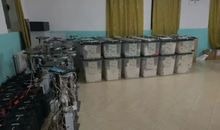
 Flash News
Flash News
Financial Times / Rama wins fourth term: the creation of a cosmetic pluralism is at risk
Neither PS, nor DP/ In Vau i Dejës, Tom Doshi's party is declared the leading force
The Xhabafte in Vora and the shelter of the patronazis, Zannier: Action is needed for the police's lack of response
OSCE report/ Head of observation delegation: Pressure and vote buying, transparency must be increased
Austrian tourist, injured in accident on Himara-Borsh road, dies
Analysis: The strong competition of open lists and the undoing of politics by electoral machines
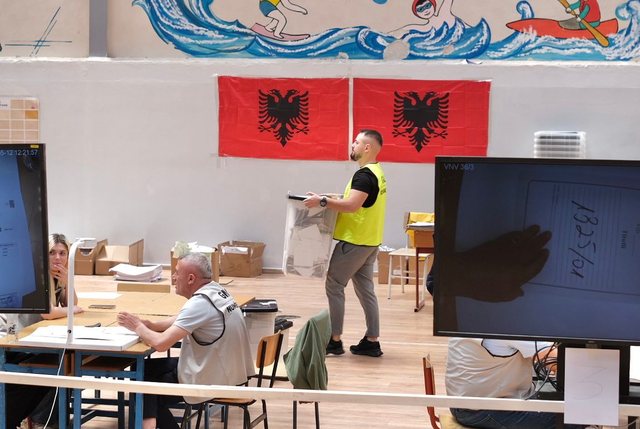
The leader of the Freedom Party, Ilir Meta, decided to run on the open lists of the opposition Alliance for a Greater Albania coalition, as did the leader of the Justice, Integration and Unity Party, Shpëtim Idrizi. Both are likely to either replace other popular opposition figures such as Jorida Tabaku or Ilir Alimehmeti, or be eliminated from the race.
This is the kind of competition that, theoretically, the opposition Democratic Party and the ruling Socialist Party agreed to make with the changes to the Electoral Code adopted by consensus between them last year. Theoretically, because both of these political forces are dominated by their respective mayors, and consequently, last year's agreement, like the 2008 agreement that brought about the closed list system, are widely considered to be Rama-Berisha or Berisha-Rama compromises and not as compromises between the two parties that the respective mayors have.
The formula of closed and open lists seems to have guaranteed Rama the energisation of his electoral machinery, by setting one machine at war with another, in a scheme that seems to know no legal limits and relies on the full use of public resources. But this formula, on the other hand, seems to have guaranteed Berisha equally complete control of his party, by controlling the appointment of deputies to closed lists.
While the counting is still ongoing and the result is not final, what is clear is that the socialist electoral machinery has functioned throughout the country with few exceptions, creating the most dominant supermajority the country has seen since 1997.
For its part, while the opposition is likely to receive its worst result since 1997, the vast majority of the mandates it is expected to win in all districts end up on closed lists.
In Tirana, the preliminary result so far gives the Democratic Party and its coalition 35% of the votes, while the number of mandates depends on the performance of small parties and is expected to vary from 13 to 15, where the possibility of this force receiving only 12 mandates is not excluded, as is the closed list. In this case, the leader of the Freedom Party, Ilir Meta, who is running from prison, is likely to remain without a mandate, along with the leader of the Justice, Integration and Unity Party, Shpëtim Idrizi. Both have a long political history and both are known as leaders of electoral machines, who, if defeated this time, seem to be defeated precisely in the field where they were supposed to have the most experience.
Meta, 56, began his political career in the last days of the Labor Party, later moving to the Socialist Party, for which he became prime minister, and then to the Socialist Movement for Integration, a party that became notorious for using power to secure votes in the period 2009-2017, initially in alliance with the Democratic Party and then, in alliance with the Socialist Party, which also elected him president.
Meta's political fate was sealed, initially in 2014 when Rama found a replacement ally in Idrizi's PDIU, and then in 2017, when Rama recruited many of Meta's local politicians, as well as the most successful PDIU structures in Elbasan and Dibër, into the ranks of the Socialist Party, recruitments that effectively turned the PS into a giant electoral machine, with no other connection between its constituent elements than interest.
Idrizi, for his part, has his political origins as a customs director in the Socialist Party and its candidate in 2005, and who won a mandate for this party in 2005. He joined a party that was initially founded to represent the Cham community, the community of tens of thousands of Albanians expelled from Greece at the end of World War II, while the success of this party appeared in the form of the electoral machinery, initially in coalition with the Democratic Party in 2013 and then, in coalition with the SP. Two of its deputies elected in coalition with the DP were caught by the decriminalization law, while the party became famous in 2016, when, in alliance with the Socialists, they transformed the Dibra area into a massive electoral crime scene thanks to cooperation with local criminal groups.
Idrizi lost his seat in Tirana in 2017, when, despite securing enough votes, he failed to reach the threshold. In 2021, he ran in coalition with the DP, while one of his MPs, Nustret Avdulla, switched sides and is now running in Fier, likely with a winning mandate for the Socialists.
Doctor Ilir Alimehmeti first became a popular figure during the Covid-19 pandemic, as a moderate voice in a party that was sliding towards conspiracy theories and anti-scientific stances on vaccines. He emerged popular in an internal Democratic Party process, known as primaries, along with current MP Jorida Tabaku, who appeared to revive the opposition after its defeat in 2021 by successfully leading the parliamentary committee investigating incinerators.
The fate of both depends on the overall party result. If the Alliance for Greater Albania wins more than 12 seats, they have a chance of entering the next parliament, always if they defeat candidates such as Meta or Idrizi. If the opposition does not get more than 12 seats, they are out regardless of how popular they are.
The results of the open list elections will take many, many days to be known. But judging from the results of the two areas where electronic voting was conducted, in Vora and in Unit 10 in Tirana, the fact is that Alimehmeti is the most popular among the opposition, ahead of Tabaku. Meta is ranked seventh while Idrizi is twenty-second.
This is of course not expected to be the final result. In Vora and in unit 10 they account for only 5% of all votes in the Tirana district.
On the Socialist side, the race seems even more complex, with their system of concentrating electoral machinery in certain areas and dividing boundaries. Among the 37 Socialist candidates from the open lists, if the current result is confirmed, seven to ten candidates will enter parliament. This means that the rest will likely have the opportunity to return to the positions of directors of the public administration from which they came. And some, of course, may not survive the criminal legal proceedings opened against them, at the investigation or trial stage.
The race within the Socialist Party in the Municipality of Vora was won by Blendi Gonxhe, who received 4,759 votes, out of a little over 8,000 votes that the Socialists received in this unit. The second on the list, Ornaldo Rakipi, who in the past elections has been dominant in Vora, received only 432 votes.
Unlike Vora, Gonxhe managed to get only 321 votes or 6% in unit 10. In this unit, Fatmir Xhafaj came first, receiving about 1,700 votes or 32% of the total for the Socialist Party. Deputy Erjon Braçe, who is known as a popular politician among the socialists, received 288 votes in Vora and 624 in unit 10.
The current electoral system is considered very negative for democracy, with MPs initially appointed by mayors, in the most extreme case, in 2009, without being informed in advance that candidates had been appointed, and then placed in competition with each other to see who is the most skilled at exercising the electoral machinery in the case of the SP, or who is most loyal to the mayor, in the case of the DP, a type of politics where ideas and debates have zero importance and where the stirring up of emotions is a politics that remains to delay the time, while the outcome of the elections is determined by access to public resources and the ease of abusing these resources./ BIRN
Latest news

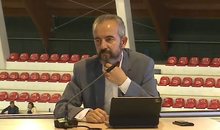
Celibashi: Here's when we can have the final election results
2025-05-12 19:45:19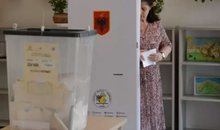
The May 11 elections, with old problems
2025-05-12 19:37:31
Source: DP should request the annulment of the elections
2025-05-12 19:25:20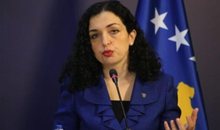
From May 15, President Osmani begins efforts to unblock the Parliament
2025-05-12 19:18:39
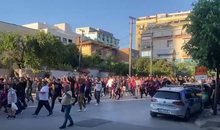
Vllaznia-Egnatia is played today, Shkodra fans arrive at the "National Arena"
2025-05-12 19:03:11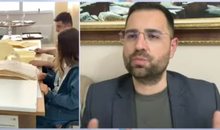
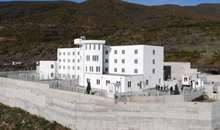
Even in the women's prison, the SP is voted for
2025-05-12 18:44:08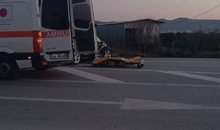
Accident in Laç, 84-year-old man taken to Trauma Hospital
2025-05-12 18:30:36
Counting continues in Tirana, Tabaku: Projection of mandates will change
2025-05-12 18:18:03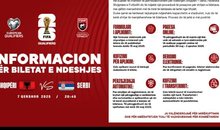
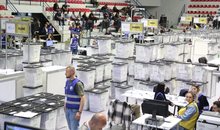
The Diaspora vote, a reflection of the elections within the country?
2025-05-12 17:59:12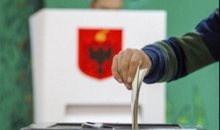
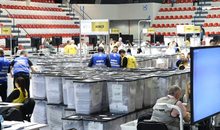

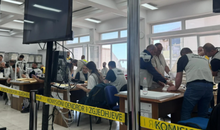
The DP leads confidently in Fushë Krujë and Kamëz
2025-05-12 17:19:50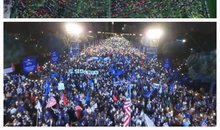
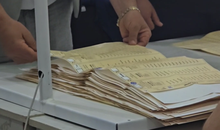


Number of diplomas declining, 9-year education most affected
2025-05-12 16:41:54
Leaving aside votes from Greece, CEC: They will not be excluded from the count
2025-05-12 16:31:53

They photographed ballots, two people are wanted in Tirana
2025-05-12 16:11:52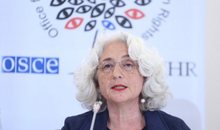
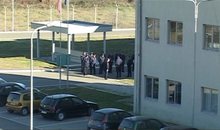
Prisoners choose Rama!? PS wins with 82% in Elbasan detention center
2025-05-12 15:55:19

Austrian tourist, injured in accident on Himara-Borsh road, dies
2025-05-12 15:37:14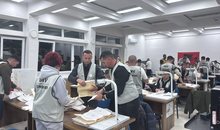
The counting process in Cërrik ends, here's who won
2025-05-12 15:31:20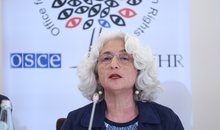
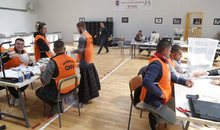
"There are violations!"/ Vote counting halted in CEAZ 17 in Klos
2025-05-12 15:11:41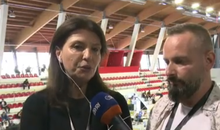
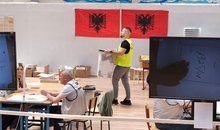

Who are the candidates of small parties who secure a seat in the Assembly?
2025-05-12 14:50:24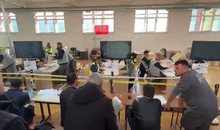
The elections were held under political patronage - organizations emphasize
2025-05-12 14:49:37
Berisha warns: The opposition will not turn a blind eye to violations
2025-05-12 14:28:33

Why did Rama grow up?
2025-05-12 14:11:37

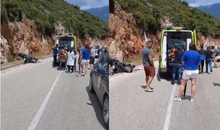
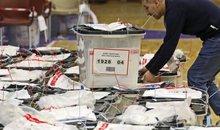
Vote counting in Delvina closes, here are the results
2025-05-12 13:38:57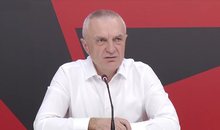
He is running on an open list, how many votes has Ilir Meta received so far?
2025-05-12 13:20:00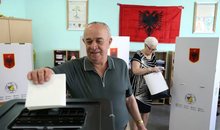

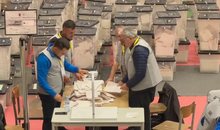

Vote counting in Fier suspended, process resumes tomorrow at 08:00
2025-05-12 12:24:35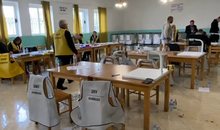
Electronic voting results published in Vora, votes for each party
2025-05-12 12:10:03
In such elections, victory can only be Edi Rama's.
2025-05-12 12:01:10
Threatened journalist during duty, 26-year-old faces criminal charges
2025-05-12 11:57:39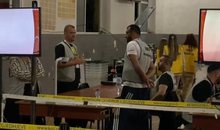
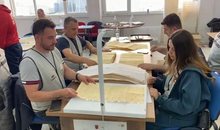
The counting process in Himara ends, the Socialist Party wins
2025-05-12 11:49:17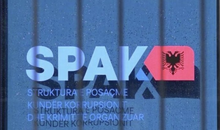
May 11th elections, SPAK: 39 criminal proceedings have been registered
2025-05-12 11:36:25
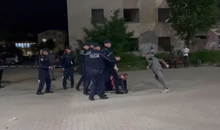

PSD third political force, what are the chances of the 'small ones' so far?
2025-05-12 11:04:31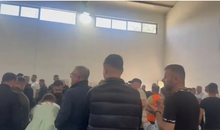
Counting ends in Rrogozhina, SP emerges as the leading force
2025-05-12 10:50:30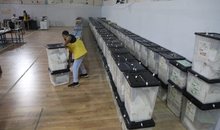
Counting ends in Tepelena, Socialist Party wins
2025-05-12 10:45:23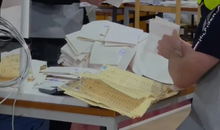
Counting ends in Memaliaj, Libohova and Këlcyrë, here's who's leading
2025-05-12 10:28:23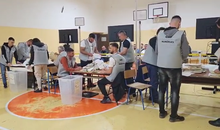
Mirditë/ DP leads over SP, how many votes have they received so far
2025-05-12 10:23:30
Spain makes decision, shortens weekly working hours
2025-05-12 10:10:30
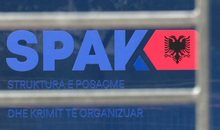
Threats for a vote, the party's deputy chairman under investigation by SPA
2025-05-12 09:53:18
The DP-ASHM coalition leads in Kavaja
2025-05-12 09:47:41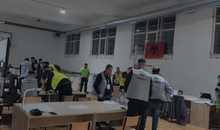
DP-ASHM leads in Kukës after counting 71 ballot boxes
2025-05-12 09:31:26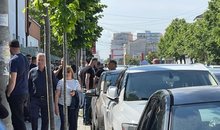
BIRN: Organized crime “oriented” the vote in Durrës
2025-05-12 09:24:39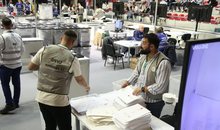
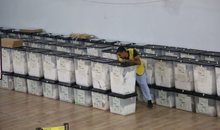
Counting ends in Kolonjë, who is leading?
2025-05-12 09:00:13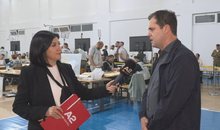
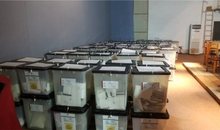
Counting ends in Pustec, SP leads
2025-05-12 08:41:21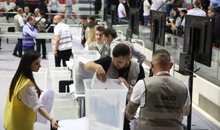
First diaspora votes counted, DP-ASHM leads by a narrow margin over SP
2025-05-12 08:38:13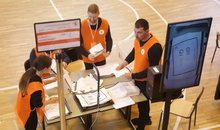
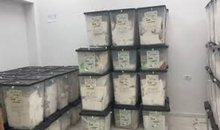
DP leads in Kukës, over 3 thousand votes ahead of SP
2025-05-12 08:16:02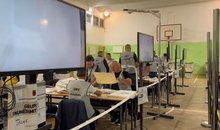
First ballot boxes counted, DP-ASHM leads in Kruja
2025-05-12 08:04:38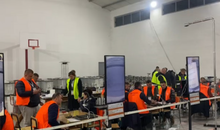

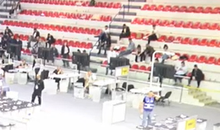
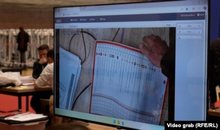
250 ballot boxes are being counted in Tirana, here are the results so far
2025-05-12 07:31:25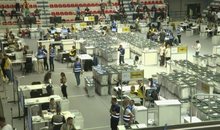
DP-ASHM leads in Shkodra, over 1300 votes difference with PS
2025-05-12 07:18:49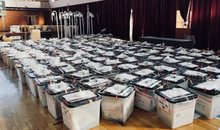
Over 17% of ballot boxes counted, who is leading?
2025-05-12 07:06:46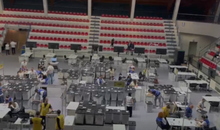
Hapet kutia e parë në Korçë, kryeson PD-ASHM
2025-05-12 01:53:23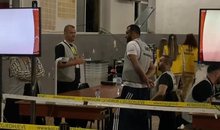
Counting begins in Shkodra district, first two ballot boxes open, DP leads
2025-05-12 01:41:21

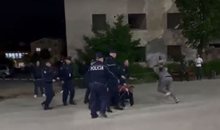
Photo/ Brawl at a counting center in Kukës, police try to stop the young man
2025-05-12 01:04:32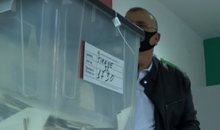
The first ballot box is counted in Tirana, the DP leads in Unit 2
2025-05-12 00:56:22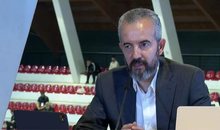
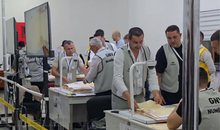
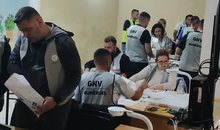
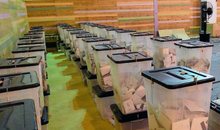
Vote counting begins in Mirdita
2025-05-12 00:25:21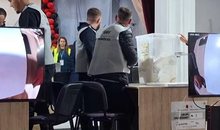
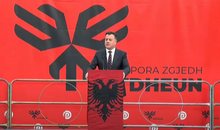
Noka accuses Balla: His bags will be separated! I will monitor every vote
2025-05-12 00:01:41
Journalist: Patronage agents who took voters and took them to vote
2025-05-11 23:49:19

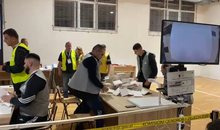
The first 6 ballot boxes are opened for counting in Kukës
2025-05-11 23:22:21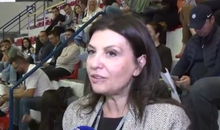

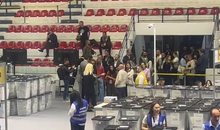
Celibashi with foreign observers arrives at the Olympic Park for Diaspora votes
2025-05-11 22:56:36